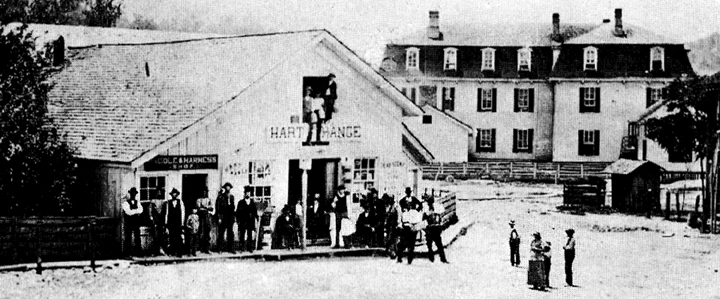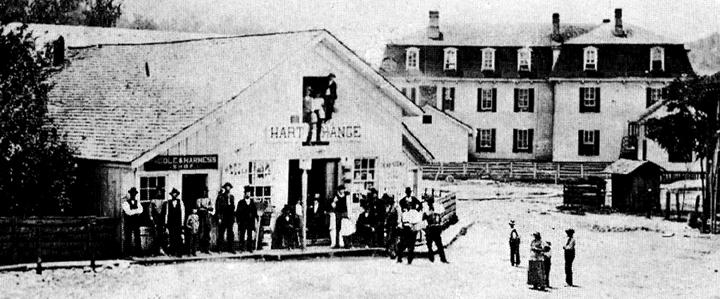I maintain a running log of area news briefs for occasional use in my column. Today's 10 entries cover a variety of subjects spanning 1872 to 1889:
Mar. 1872: Elcanah Hoss, Esquire, completed an elegant and spacious hotel (unnamed but likely the City Hotel, later renamed the Piedmont Hotel) just a few steps from the location of the city’s car shed. He featured an impressive menu of tasty items for his patrons. A witty ad in rhyme states, “Elcanah is a good hotelier and otherwise a bully feller. He’ll give you chicken, ham or beef. He’ll give you coffee, milk or tea or anything you wish to see and will not bring your cash to grief.”

Mar. 1872: A 14-inch snow that blanked the area produced as much as 25 inches of mud in some places. Overall, business was good that year considering the scarcity of money in the country. There was talk of resuming work on the railroad from Johnson City to the Carolinas. Iron was the great staple here. Several improvements were underway in the city.
Oct. 1872: Dr. Daniel Kinney, one of the oldest physicians in upper East Tennessee died on this day. Also, a small son of Major Tipton of Roan County fell from a wagon loaded with pumpkins. The wheels ran over his body causing serious but not life-threatening injuries. William Perry, a worthy citizen of Sullivan County was severely injured after being kicked on the right knee by a horse, confining him to his home with severe pain.
Apr. 1873: Favorable signs were discovered at the foot of Buffalo Mountain near Johnson City, which proved the existence of bituminous coal in large quantities. A company was organized and began drilling a shaft for further development. Mica was also discovered near the same site and another company was contacted to pursue it. Iron ore was also found to exist there in abundance.
Apr. 1873: Mr. John C. Blakely, a 40-year-old resident on Horse Creek about 18 miles from this place, has lived in the same settlement ever since he was a child. He made his first visit to Jonesboro that month. For the first time, he saw a train of railroad cars. He admired the massive engine of a passing train and commented that it could “blow its horn louder than a cow could bawl.”
Apr. 1873: The rumor mill began buzzing over news that an undisclosed company had bought property and organized at the old downtown Union Depot for the purpose of erecting buildings to provide a cotton manufactory.
July 1873: A number of farmers in the vicinity of Johnson City met for the purpose of organizing a “Farmers' Association.” Mr. Tipton Jobe donated 15 acres of land as a suitable location for a fair ground. Mr. Sam Miller was elected temporary president of the Association.
Oct. 1, 1873: The Washington County Fair opened for a 2-day engagement. The gathering was described as being a large one for the first day with over 1000 persons in attendance. The ladies were out in full force and were deeply interested in the activities of the event. The display of stock, farm products and ladies handiwork was judged to be excellent. The fair was a complete success. C.W. Charlton (editor of Brownlow's National Wig) spoke for about one hour and a half, with those in attendance listening to him with “marked respect and attention.”
July 1874: Professor Gale's School in Blountville ended its school year with an entertaining concert. It was accompanied with charades with all of the students participating. The admission fee was ten cents. The blurb noted that the school was large and doing well. The professor was described as an excellent teacher.
Apr. 1889: Contractors were ready to begin work on the CC&O Railroad pending the issuance of bonds. They were placed in the hands of a trust company to be delivered to the railroad at which time the mayor of Johnson City and the chief engineer of the line deemed that the terms of the contact had been met. It was noted that Johnson City had more enterprise to the square inch than any town in the South and could be relied upon when a significant occasion like the railroad issue presented itself.

Comments are closed.